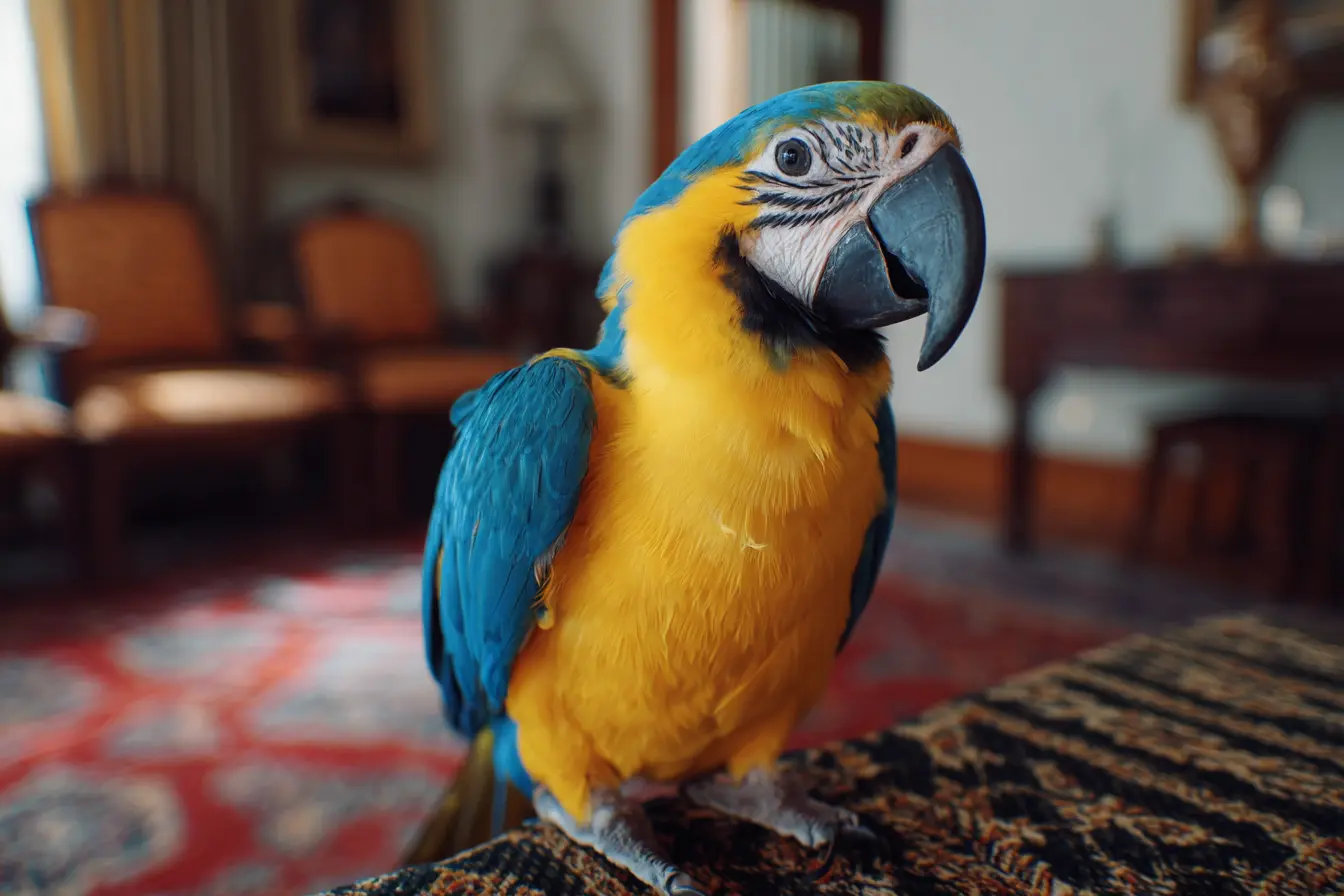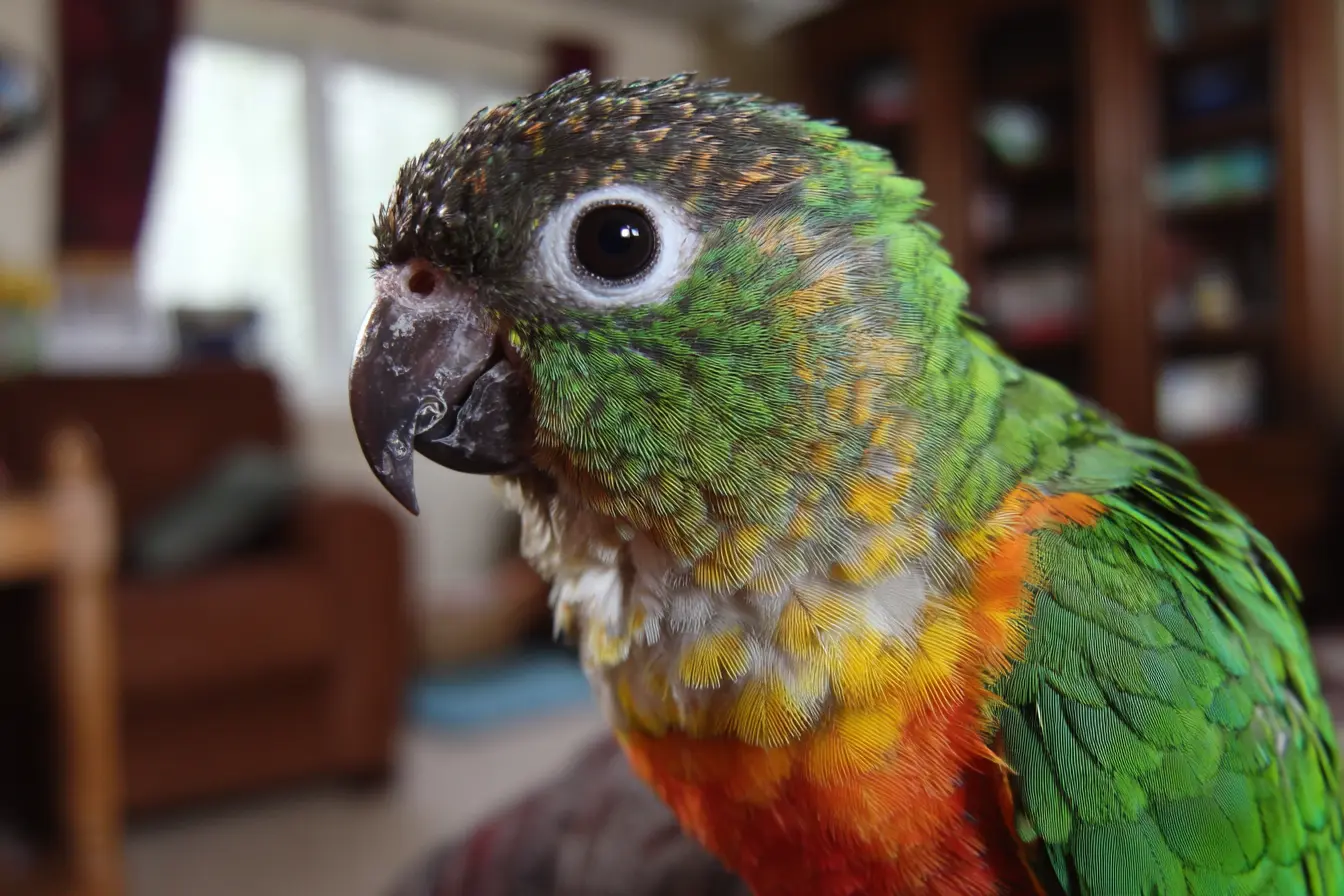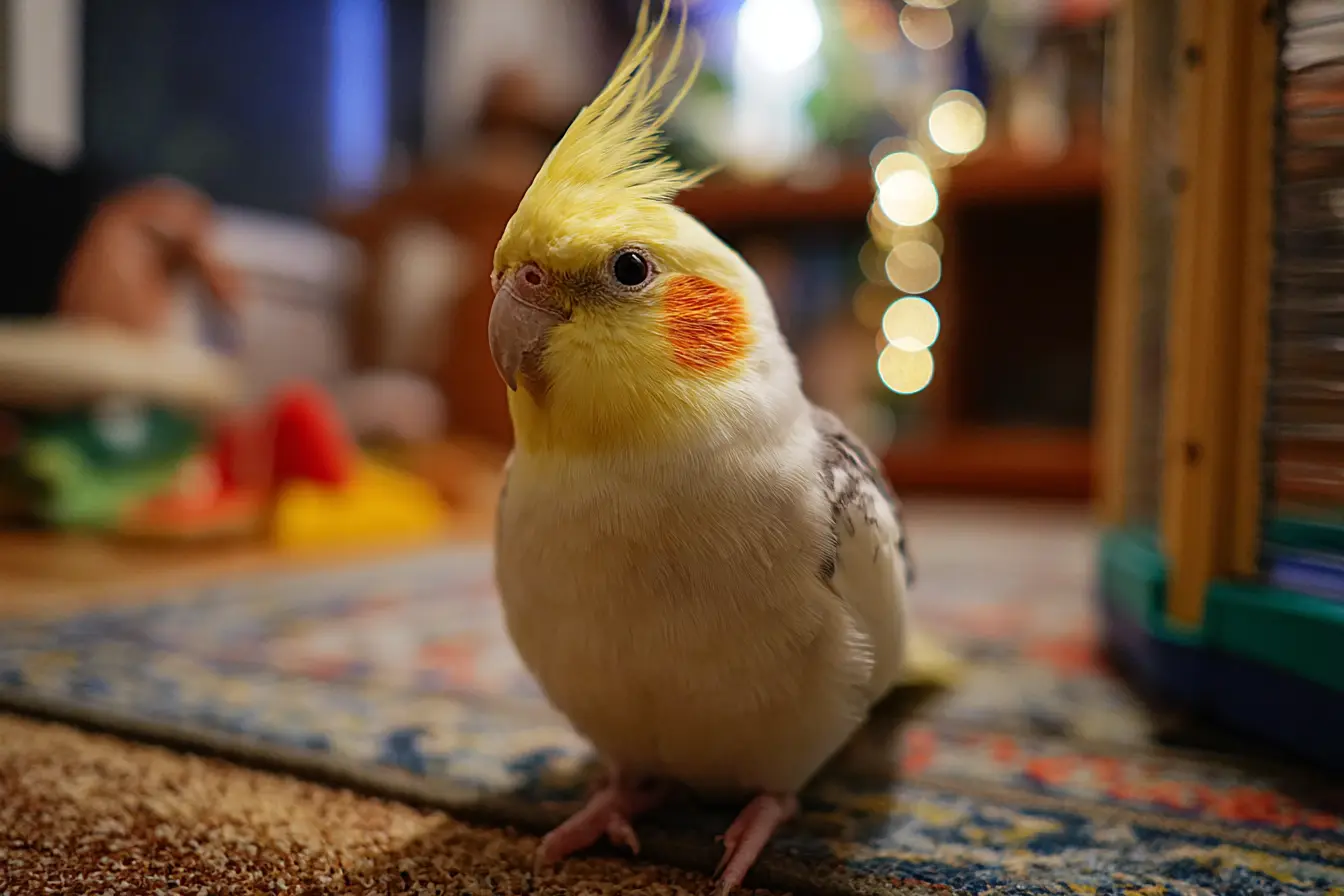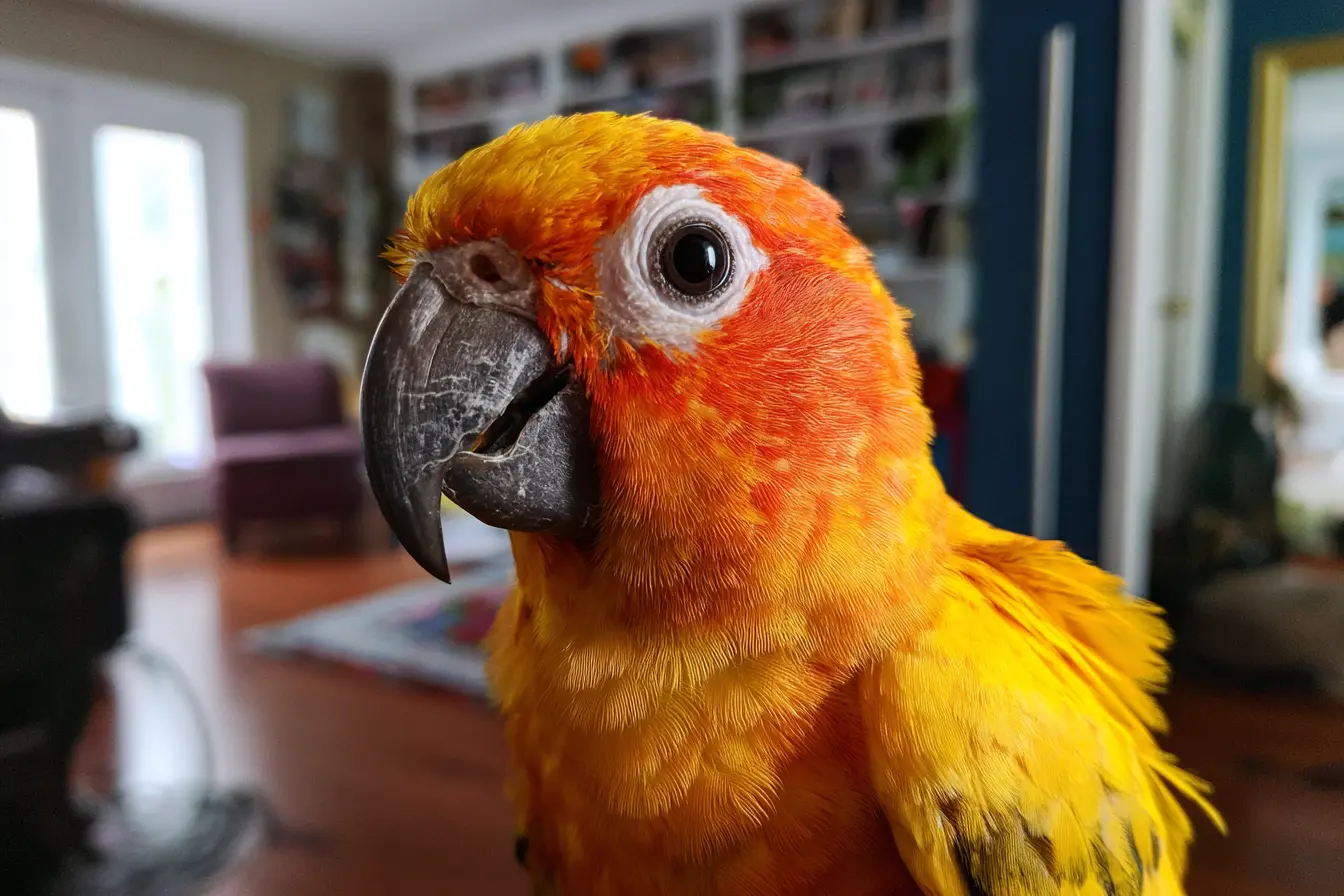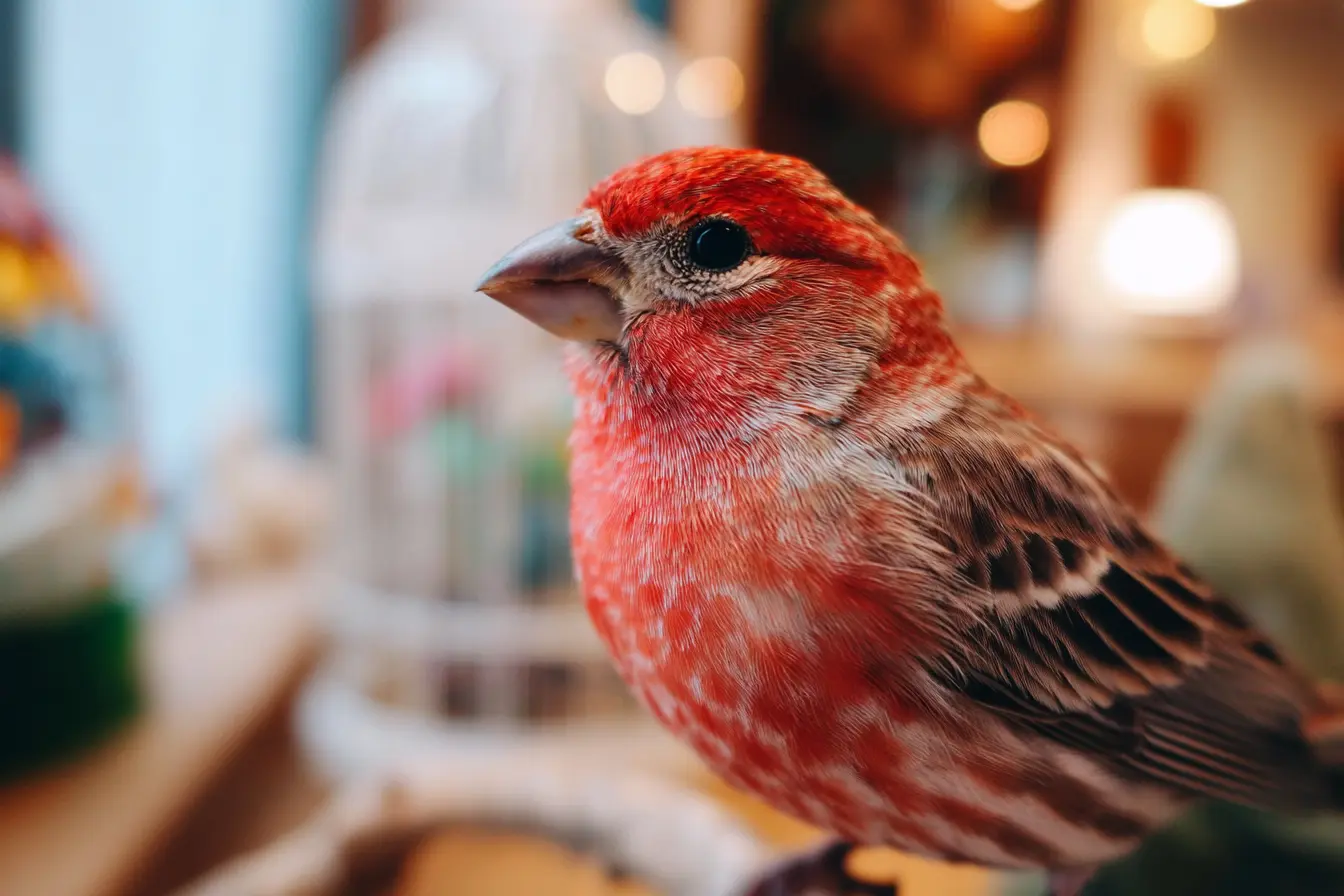
Mycoplasma Infections in Pet Birds: Causes, Symptoms, and Treatment
Mycoplasma infections, caused by bacteria of the genus Mycoplasma, are a common and often under-recognised health issue in pet birds. These infections can affect the respiratory system, eyes, and joints, leading to chronic health problems if left untreated. While more frequently associated with poultry, Mycoplasma species can also affect companion birds such as budgerigars, cockatiels, parrots, and finches.
Understanding how Mycoplasma infections develop, how to identify them, and the available treatment options can help bird owners protect their feathered companions and maintain their overall well-being.
What Are Mycoplasma Infections?
Mycoplasmas are a group of small, wall-less bacteria that attach to mucous membranes and are capable of causing respiratory, ocular, and sometimes systemic disease. In birds, the most common pathogenic species include Mycoplasma gallisepticum (MG) and Mycoplasma synoviae. These organisms can be transmitted through direct contact, airborne droplets, contaminated surfaces, or even from parent birds to chicks.
Mycoplasma infections are particularly concerning in environments where multiple birds are housed together, such as aviaries or breeding colonies, as the bacteria spread easily between individuals.
Causes of Mycoplasma Infections
Several risk factors can contribute to the spread and severity of Mycoplasma infections in pet birds:
Close Contact and Crowded Housing
Birds in close quarters—such as shared cages or aviaries—can easily spread respiratory droplets and contaminated materials. Overcrowded or poorly ventilated conditions increase the risk of transmission.
Stress and Immunosuppression
Stress weakens the immune system, making birds more susceptible to infection. Changes in environment, travel, new cage mates, or poor diet can all contribute to stress.
Exposure to Infected Birds
Introducing new birds without proper quarantine is a leading cause of Mycoplasma outbreaks. Even apparently healthy birds can be asymptomatic carriers and infect others.
Poor Hygiene
Dirty cages, unwashed food and water dishes, or contaminated bedding can harbour Mycoplasma and other pathogens. Inadequate cleaning increases the likelihood of infection.
Inadequate Nutrition
A weakened immune system due to vitamin deficiencies, particularly vitamin A, can make birds more vulnerable to respiratory infections, including Mycoplasma.
Symptoms of Mycoplasma Infections
The clinical signs of Mycoplasma infection in pet birds can vary depending on the species, the bird’s overall health, and the severity of the infection. Common symptoms include:
- Sneezing or nasal discharge
- Watery or swollen eyes (conjunctivitis)
- Coughing or wheezing
- Difficulty breathing or open-mouth breathing
- Head shaking or rubbing the beak on objects
- Lethargy and reduced activity
- Decreased appetite or weight loss
- Poor feather condition
- Swelling in joints (in cases where the bacteria affect the synovial tissues)
In finches and canaries, ocular symptoms are particularly prominent, while in budgerigars and cockatiels, respiratory signs are more common.
Diagnosing Mycoplasma Infections
A diagnosis of Mycoplasma infection should always be confirmed by an avian vet. Diagnostic methods include:
- Physical examination to assess symptoms and overall health
- Swabs of the conjunctiva, trachea, or choana for bacterial culture or PCR testing
- Blood tests to detect immune response
- Radiographs (X-rays) in severe respiratory cases
- Joint fluid analysis, if lameness or joint swelling is present
Because Mycoplasma symptoms overlap with other respiratory diseases such as chlamydiosis or bacterial sinusitis, definitive testing is important to avoid misdiagnosis.
Treatment of Mycoplasma Infections
Once diagnosed, treatment typically involves a combination of antibiotic therapy, supportive care, and environmental management.
Antibiotics
Tylosin, doxycycline, or enrofloxacin are commonly prescribed antibiotics for treating Mycoplasma infections. These may be administered orally, via water, or by injection, depending on severity and bird species.
Supportive Care
Ensuring proper hydration, nutrition, and a stress-free environment supports the bird’s recovery. A warm, quiet, and well-ventilated cage is essential.
Eye or Nasal Drops
Topical antibiotic drops may be used to relieve conjunctivitis and clear nasal passages.
Long-Term Carriers
Some birds may remain carriers of the bacteria even after treatment and can infect others. In multi-bird households, vet-guided treatment of all birds may be necessary.
Avoiding Self-Medication
Do not attempt to treat suspected infections without veterinary guidance. Inappropriate antibiotic use can worsen resistance and mask symptoms without curing the disease.
Preventing Mycoplasma Infections
Preventing Mycoplasma infections requires proactive management of your bird’s environment and health.
Quarantine New Birds
Always isolate new birds for a minimum of 30 days and monitor them closely for any signs of illness before introducing them to other birds.
Maintain Good Hygiene
Regularly clean cages, perches, food dishes, and water containers. Disinfect with avian-safe cleaning products to eliminate potential pathogens.
Promote a Healthy Immune System
Feed a balanced diet rich in vitamins and minerals, especially vitamin A, which is vital for respiratory health. Avoid seed-only diets and supplement with fresh vegetables and high-quality pellets.
Minimise Stress
Provide a stable, enriched environment with toys, perches, and social interaction. Avoid sudden changes and ensure birds have quiet, secure sleeping areas.
Regular Vet Check-Ups
Annual health checks can help detect subclinical infections early and ensure your bird remains in top health.
When to See a Vet
Immediate veterinary attention is advised if your bird shows:
- Difficulty breathing or audible wheezing
- Persistent eye discharge or swelling
- Sudden changes in behaviour or activity level
- Weight loss or loss of appetite
- Recurring symptoms despite initial treatment
Final Thoughts
Mycoplasma infections can be persistent and problematic, but with early detection, proper veterinary treatment, and good husbandry practices, most pet birds can recover and thrive. Understanding the signs, preventing transmission, and ensuring a clean and stress-free environment are essential for protecting your bird’s respiratory and overall health.
If you suspect a Mycoplasma infection, consult an avian vet promptly. Early intervention not only improves your bird’s outcome but also helps prevent the spread of infection to other birds.
Vets near you
Speciality vets
- Aquatics vet specialists
- Birds vet specialists
- Camelids vet specialists
- Cats vet specialists
- Cattle vet specialists
- Deer vet specialists
- Dogs vet specialists
- Equines vet specialists
- Exotic vet specialists
- Goats vet specialists
- Pigs vet specialists
- Poultry vet specialists
- Sheep vet specialists
- Small Mammals vet specialists
- Wild vet specialists
Vet facilities
- Accessible by public transport
- Blood testing
- Car park nearby
- Client car park
- Dentistry
- Diagnostic imaging
- Disabled public access
- Flea and worm treatments
- Microchipping
- Mobile services
- Neutering
- Open at weekends
- Out-of-hours service
- Referral interests
- Referrals only
- Street parking outside
- Toilets available
- Vaccinations
